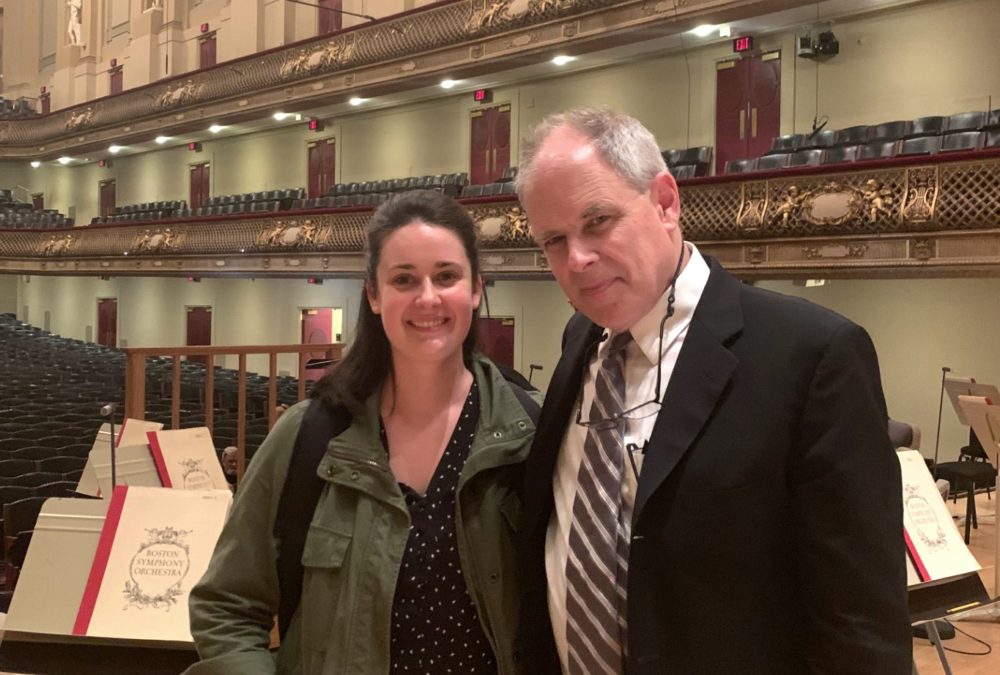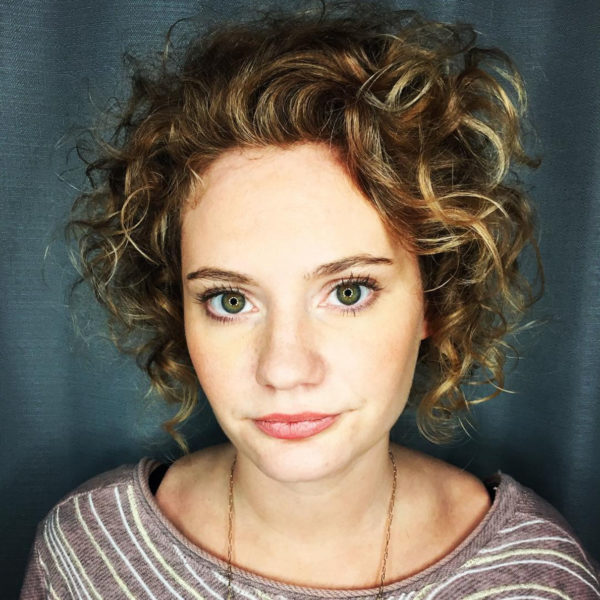Advertisement
Meet The Father-Daughter Duo In The Boston Symphony Orchestra

Mary Ferrillo had a lot at stake when she stepped behind the screen with her viola for her fourth audition at the Boston Symphony Orchestra in February. She was three months shy of her 30th birthday and it was her 22nd audition for a major orchestra. But at the BSO, these weren’t just potential colleagues she was trying to impress, they were her father’s colleagues, too.
Mary's father is BSO principal oboist John Ferrillo, who has been with the symphony since 2001. She spent her childhood in awe of their work, falling in love with classical music among some of its greatest players. Her father says he was proud, as any father would be, when he found out his daughter landed the coveted spot, but his overwhelming emotion was relief.
John knows all too well what an ordeal auditioning can be. Just shy of his own 30th birthday, he got his first big break as second oboe at the San Francisco Symphony. It was his 22nd audition, too.
Mary choked back tears and laughter when she told me what it means to her to share the stage with her father. She sits in front of him at rehearsals, and when her bun is too high, he pushes it down. Of course, he says, he would never do that to anyone else. Their relationship is warm. Not everyone has a parent who understands their hopes and ambitions — as well as the challenges that go along with them.
Mary and her sister both played music growing up, but John never pushed them either way. He says he didn’t want them to have the heartbreak he experienced and worse if it happened not to work out at all. It wasn’t until Mary was about halfway through school at the University of Maryland College Park that she decided she wanted to be a career violist. She tried other subjects, she hoped something would stick, but the more serious she got about her music, the more she knew this was the life she wanted. John says his worry faded away when he saw her play after she had been studying with his former BSO colleague Edward Gazouleas. “All of a sudden the lights were going on. I have never seen such quantum leaps in that way,” he says.
John’s audition path was winding, he says, but he views Mary’s as the more natural progression. She took some auditions when she wasn’t sure if she was ready yet because she knew it would give her more experience. Mary was methodical in her audition approach, John says. What someone else might view as a failure, she took as a lesson. That determination buoyed her over the negative self-talk that debilitates many musicians early in their careers, like her father.
For years John was "always the bridesmaid, never the bride," he says, and started to do something he always tells his students not to do: He catastrophized. "Like ‘how do I glue my life back together after having gone through that?’ "
When he earned his spot at the San Francisco Symphony, he wanted to kiss the ground in gratitude. “How many people get to do something that they’ve wanted since they were 8 years old?”
In addition to his position as principal oboist, John teaches at New England Conservatory, Boston University and the Tanglewood Institute. He’s watched many talented students work for years trying to get their big breaks, just as he did. He says he wishes he could bottle up how Mary handled the process. “Her attitude was a lot more constructive than mine and some of my students,” says John. “She did have the benefit of family experience, and great coaches.”
She hesitatingly admits that she’s grateful for the long process because it pushed her to be a more skillful musician, and it made her appreciate the gravity of the opportunity.
“I never thought of it as an impossible obstacle so much as a puzzle that I had to figure out for myself,” says Mary. “I can tell you what I did to get myself into the place I needed to be but it is deeply personal. I think I always knew that it was personal from watching everyone else doing it.”
I spoke with Mary and John hours before the BSO opened its season with Andris Nelsons conducting a program of Poulenc, Beethoven and Eric Nathan earlier this month. Mary had watched John's career on this stage from the sidelines for the past 18 years, and now she finally got to share it with him: “I walk out on that stage and I know how deeply my dad cares about this place and his colleagues,” she says.
Besides sharing the stage with her father, she’s most excited this season about playing the third act of Wagner’s “Tristan and Isolde.” She loves opera, the genre has struck an emotional chord since watching her father play with the Metropolitan Opera when she was a child.
“I get teary regularly, because I get to experience something I’ve always wanted, and I get to do it here,” says Mary.
John says that at 64, he feels the same way. A somberness sets in as a thought crosses his mind. “It’s going to be really hard when I can’t do it anymore, and I’ve realized while I have some time left, it’s not that far off.”
Mary says that’s why this was so important to her, to be at the BSO now. “It’s almost impossible to imagine, but it comes out in the music. Like this week we’re playing Poulenc, and I don’t know Poulenc very well,” they get swept up in the music just talking about it, and the mood lifts again. John interjects. “Well that’s because you’re a string player,” she chimes back in to explain to me that woodwinds play a lot of Poulenc.
For John, sharing music with Mary has been a great joy. “To see other people so happy for her, who truly enjoy working with her as much as they do, every parent should know that feeling.”
